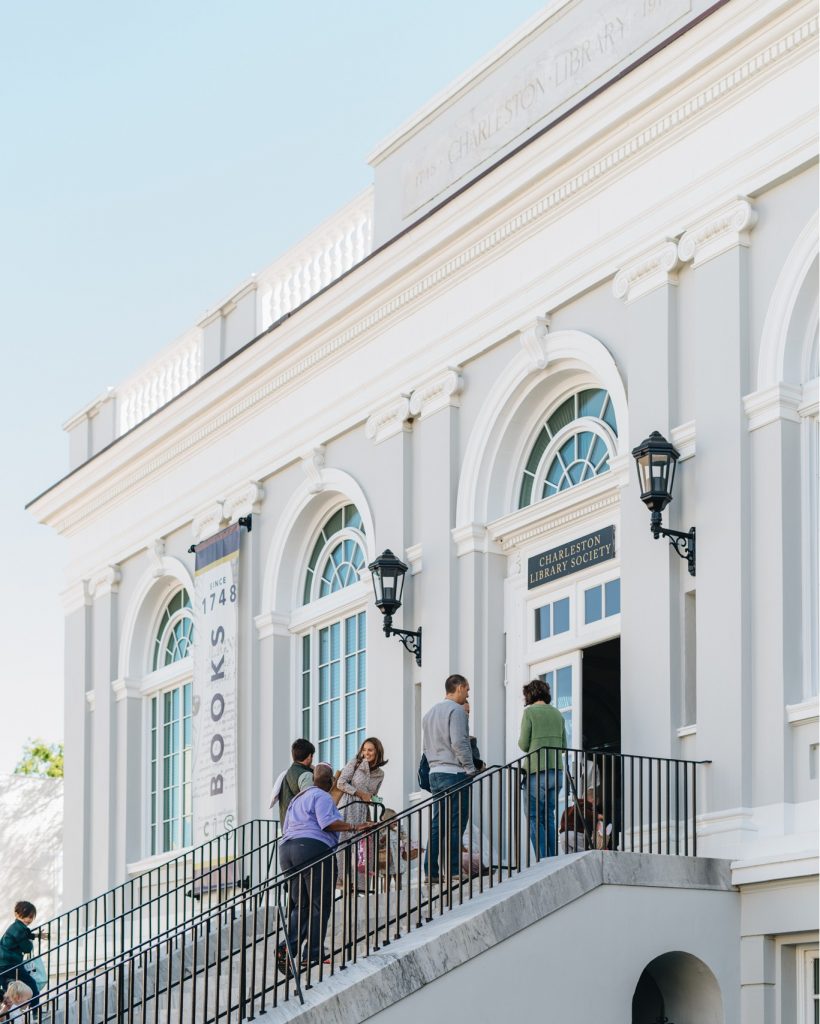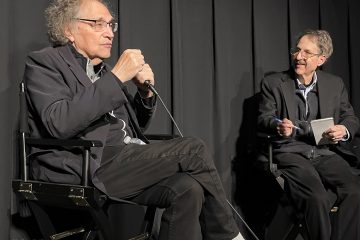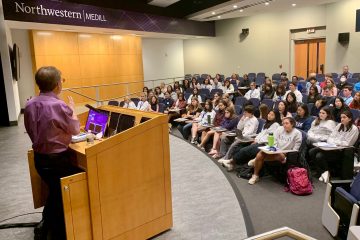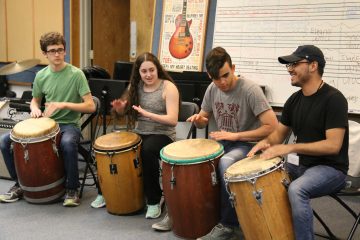‘For the Left Hand’ sparks conversation in Charleston

“For the Left Hand” has screened across North America, but rarely in a venue as historic as the Charleston Library Society.
Founded in 1748, the organization describes itself as “the oldest cultural institution in the South” and the “second oldest circulating library in the country.” Though its current location sprang up somewhat later, in 1914, the edifice carries a palpable sense of history, thanks partly to an immense collection of books dating to the 17th century.
On May 17, a capacity crowd watched Kartemquin Films’ “For the Left Hand” projected in a room lined with bookshelves stretching floor to ceiling. Afterward, co-director Gordon Quinn and writer/co-producer Howard Reich took to the stage to field a deluge of questions.
“How did you get Norman to tell his story?” asked one filmgoer.
“I recently asked Norman that question,” said Howard. “Norman said, ‘I didn’t really plan on telling you the story. You just kept coming back with more questions.’”
Another viewer asked about ethics in filmmaking, an issue that long has been of key importance to Gordon. He explained that journalism and documentary filmmaking are different in some ways. Howard, for example, never would show his writing to the subject of an article before it was published. But if Gordon is making a film about a non-celebrity, he wants the subject to see the work before it’s completed.
“If the subject disagreed with something we did, I’m glad to have a discussion about that and argue my point of view,” said Gordon. “But if the subject still feels strongly that something must be changed, I’ll respect their wishes. They must have power in telling their own story.”
Thus Gordon, Howard and the rest of the “FTLH” crew showed Norman the film shortly before it was finished. Norman requested no changes.
Another Charleston viewer asked if people with disabilities want their story told, and if so, how do you handle that?
Gordon pointed out that it’s up to the individual if he or she wants their story known. If so, a key point is not to define the person by their disability, with Norman Malone being a classic example. Above all else, Norman sees himself as a musician first and foremost. Everything else is a distant second, third and so forth.
The event went so well that Gordon and Howard have been invited back to Charleston to show the first film they made together, “Prisoner of Her Past” (2010), also inspired by Howard’s writings. They hope to return to Charleston in the fall.


